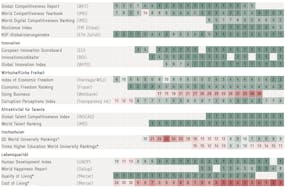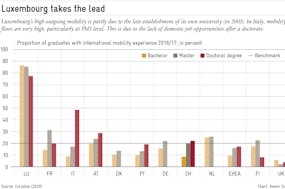Uber is as admired as it controversial. The California-based ride sharing company conquered the international scene in record time. In Switzerland, where it is present in four cities, its flexible work schedule model has been just as criticized as it is in many other countries. Indeed, an Uber driver is not only free to accept or decline a trip at any given time, but additionally, trip fares vary according to aggregate demand.
Unions are concerned by this model as they believe that it may lead to precarious employment conditions. And what about the driver’s opinion on the subject? At first glance, flexible working schedules are more advantageous for employees than for employers. Employers tend to favor fixed working schedules for two main reasons: it enables them to manage and coordinate their collaborators more efficiently and furthermore, businesses often have regular opening hours and the need for physical presence during said hours.
In a recent study, four American economists analyzed the behavior of one million Uber drivers in real-time in the United States. Uber’s versatile technological platform enabled them to accurately estimate what is known as the “booking salary”. In other words, this is the salary for which a driver is disposed to take his car out of the garage.

Eggs and flour flung at an Uber car during a demonstration against Uber’s transport service.
The study demonstrated that Uber drivers prefer working part time, particularly during the evening and on weekends. Time flexibility represents a substantial economic value for them. The study highlights that for the same service with fixed working hours, drivers would request a 40% higher salary. Two-thirds of Uber drivers would rather stay at home and subsequently abandon this source of revenue, if their freedom of choice was taken away without a financial compensation.
This study is the first to be able to quantify the advantages that short term self-determination of working hours generate for employees. Undoubtedly, Uber, as well as other sharing economy platforms, do not offer the greatest long-term career perspectives. Nevertheless, they can be considered as an important complement to a person’s salary—in particular for young people or people with low income. For these reasons alone, flexibility is a notion that must be preserved.





